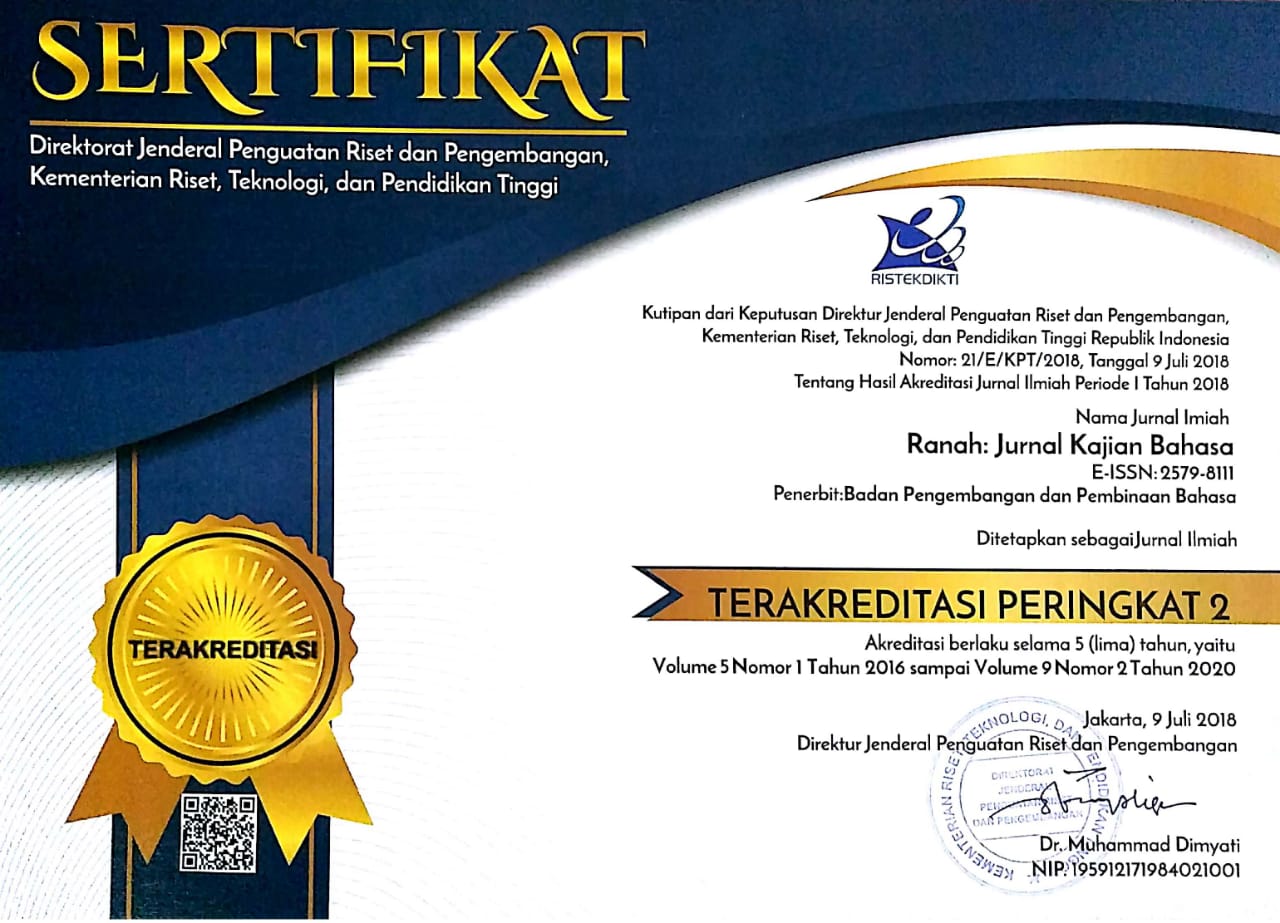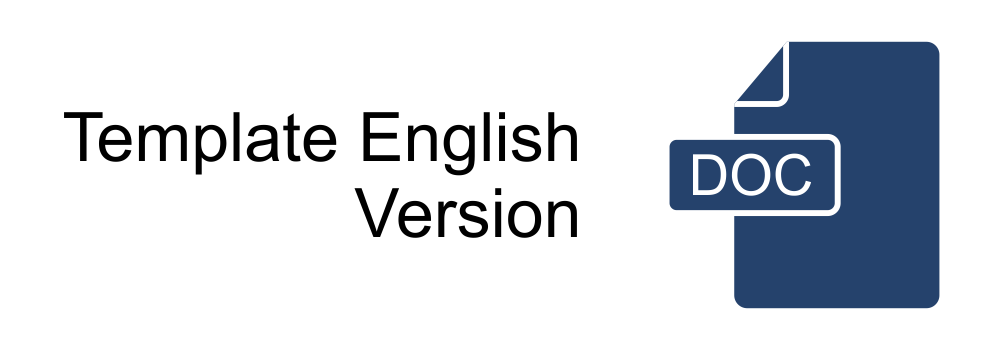Sistem Appraisal pada Slogan dalam Kain Rentang Kampanye Politik Bakal Calon Kepala Daerah Kabupaten dan Kota Bogor
Abstract
One of language functions in political discourse is to persuade others, and one of the media to implement the function is slogan used on political campaign banner. This research aims to explore the use of appraisal system, especially attitude, and its source of appraisal in the slogans on political campaign banners of regent and mayor prospective candidates in Bogor Residence and Bogor City. Researches on slogans on political campaign banner have been widely counducted, while the researches which apply the appraisal theory are still not easy to find. In fact it can help text consumers clearly see the attitude and the evaluation of the text producers on subjects they communicate. The data were analyzed by using appraisal system theory proposed by Martin and White (2005). The data were obtained by observing and were analyzed by using referential matching (padan referensial) method. The results show that judgment is the most-frequently-used subcategory in the slogans. It reflects that the political campaign banner creators give more emphasis on appraisal of human behaviour, whether of themselves or of others (society). Regarding the subjects and the objects, the appraisals were most predominantly made by and givento the regent and the mayor prospective candidates themselves as the slogan makers. The finding shows that the regent and the mayor prospective candidates often subjectively claim their quality without considering others’ opinion in their political advertisement.
Abstrak
Salah satu fungsi bahasa dalam wacana politik adalah untuk memengaruhi orang lain. Fungsi tersebut diwujudkan salah satunya dalam bentuk slogan kampanye politik pada kain rentang. Penelitian ini bertujuan untuk mengetahui penggunaan sistem appraisal, khususnya subsistem attitude, dan sumber penilaian dalam slogan pada kain rentang kampanye politik bakal calon kepala daerah di Kabupaten dan Kota Bogor. Data-data dalam penelitian ini dianalisis dengan menggunakan teori sistem appraisal yang dikemukakan oleh Martin & White (2005). Data-data tersebut diperoleh melalui metode simak dan dianalisis dengan metode padan referensial. Hasil penelitian menunjukkan bahwa judgment merupakan subkategori attitude yang paling banyak digunakan dalam slogan. Hal ini menunjukkan bahwa para pembuat iklan lebih menekankan penilaian terhadap perilaku manusia, baik terhadap dirinya sendiri maupun orang lain (masyarakat). Sementara itu subjek dan objek penilaian yang paling dominan adalah bakal calon kepala daerah sendiri selaku pembuat slogan. Temuan ini menunjukkan bahwa para bakal calon kepala daerah kerap membuat klaim-klaim sepihak mengenai kualitas dirinya, tanpa mengutip atau menampilkan pendapat dari pihak lain.
Keywords
Full Text:
PDF (Bahasa Indonesia)References
Halliday, M. A. K. (2014). Halliday’s Introduction to Functional Grammar (Fourth Edition). New York: Routledge.
Handono, S. (2017). Implikatur Kampanye Politik dalam Kain Rentang di Ruang Publik. Aksara, 29 (2), 253. https://doi.org/10.29255/aksara.v29i2.52.253-266
Martin, J. R., & White, P. R. R. (2005). The Language of Evaluation. Appraisal in English. New York: Palgrave Macmillan.
Mazlum, F., & Afshin, S. (2016). Evaluative Language in Political Speeches: A Case Study of Iranian and American Presidents’ Speeches. International Journal of Linguistics, 8 (4), 166. https://doi.org/10.5296/ijl.v8i4.9398
Nugraheni, Y. (2011). Sistem Appraisal pada Teks Iklan Komersial di Tabloid NOVA. Jurnal Parole, 2 (1), 45–58.
Retnowati, Y. (2013). Efektivitas Iklan dalam Meraih Partisipasi Politik. Jurnal Wacana 12 (3).
Rohmawati, I. (2016). Appraisal Devices Realizing Attitudes in Barack Obama’s Inaugural Speech. Jurnal Vision, 5 (1), 27–55.
Sudaryanto. (2015). Metode dan Aneka Teknik Analisis Bahasa. Yogyakarta: Sanata Dharma Univ. Press.
Suparto, A. D. (2018). Transitivity Analysis on Framing in the Online News Articles. Ranah: Jurnal Kajian Bahasa, 7 (1), 16. https://doi.org/10.26499/rnh.v7i1.586
Tim KBBI. (2017). Kamus Besar Bahasa Indonesia Edisi Kelima. Jakarta: Badan Pengembangan dan Pembinaan Bahasa, Kementerian Pendidikan dan Kebudayaan.
DOI: https://doi.org/10.26499/rnh.v7i2.603
Refbacks
- There are currently no refbacks.








